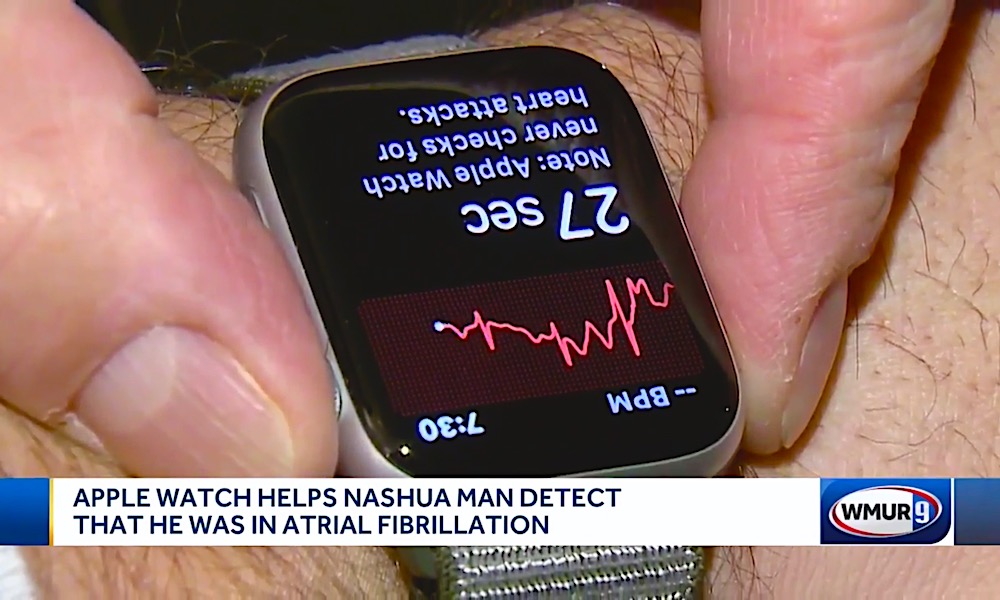Apple Watch ECG Alerts New Hampshire Man to Undiscovered AFib
 Credit: WMUR9
Credit: WMUR9
Toggle Dark Mode
Barry Maden thought he just had holiday nerves, but his Apple Watch Series 4 clued him in on the fact that it was something potentially much more serious.
Maden, of Nashua, New Hampshire, first picked up an Apple Watch Series 4 to keep an eye on his health after a brain injury, according to local media station WMUR. Specifically, Maden’s wife cited the fall detection feature as one of the main reasons for the couple buying it.
Around Christmas time, Maden was experiencing what he described as “anxiety around traveling for the holiday.” But his Apple Watch alerted him to the fact that he had atrial fibrillation, an irregular heartbeat that can lead to other life-threatening problems if left untreated.
“It said, ‘it looks like your heart is in AFib. You should contact your doctor,” Maden told WMUR.
He decided to go to the hospital, where doctors performed full-fledged ECG testing. Sure enough, they found that Maden did indeed have AFib.
“It would’ve probably taken me longer had I not had something actually telling me that something’s not right,” Maden said.
He was sedated and underwent a medical procedure where his heart was basically stopped and restarted, WMUR reported.
While Maden got the Apple Watch Series 4 for one health reason,
“Instead of just being a toy or a tchotchke, I think I’ll probably pay closer attention to it,” Maden concluded.
First announced back in September, the support for the Apple Watch ECG reading was rolled out in the U.S. about a month ago. Notably, it’s the first consumer-facing ECG available without a prescription.
The Apple Watch has proven itself to be a lifesaving device numerous times — even before the introduction of the ECG feature on the Series 4.
While some doctors are worried that widely available ECGs could cause unnecessary fear in consumers and use up valuable medical time and resources, the new feature is proving to be incredibly helpful for those who do have AFib.
The Apple Watch is at the forefront of the Cupertino tech giant’s broader health ambitions. Apple has long taken to marketing the device as an all-in-one health monitoring platform. Back in 2017, it even launched its own health study in partnership with Stanford focusing on the Apple Watch’s ability to detect AFib.






